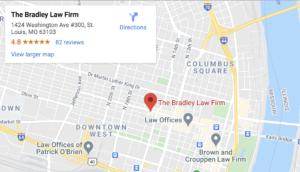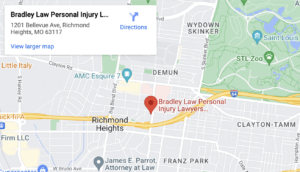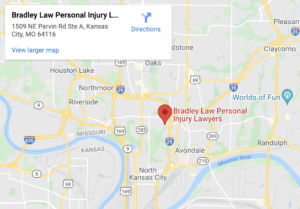
In some personal injury cases, the at-fault party may not be the only one who is legally and financially liable for the injuries you suffered. In some cases, there may be another party from which you can pursue compensation for your injuries, such as a wrongdoer’s employer.
Below, we discuss vicarious liability and how this legal principle may affect your claim.
Table of Contents
What Is Vicarious Liability?
Vicarious liability is a legal principle that holds a party liable for someone else’s actions. This term is used in cases involving criminal and civil law. In the civil legal system, a supervisory party like an employer may ultimately bear legal and financial responsibility for the conduct of a subordinate or associate because of vicarious liability.
How Can Vicarious Liability Affect Your Personal Injury Claim?
When you are seeking compensation from an at-fault party, you may be limited to financial compensation equal to the at-fault party’s insurance limits or the value of their collectible assets.
In many personal injury cases, this may significantly limit the victim’s recoverable compensation because the at-fault party may not have enough to cover the full extent of the victim’s damages. However, if vicarious liability applies, there is another party from whom you can seek compensation – which presents further options to recover all your damages.
Examples of Vicarious Liability
Vicarious liability is usually based on the relationship between the parties, such as:
- Employer/employee – If an employee injures someone through their negligence while performing duties within the scope of their employment, the employer may be vicariously liable for the injuries. This is because the worker is not performing the work of their own volition but is instead doing the work for the employer’s benefit. Therefore, if liability arises, the employer may ultimately bear responsibility.
- General contractor/construction workers – Even absent a direct employment relationship, one party may be responsible for another. For example, in the construction industry, the general contractor may assume responsibility for and have control over subcontractors. If a worker is injured on the job, the general contractor may be responsible for such injuries. Likewise, if the worker operates a crane and injures someone walking by the job site, the general contractor may be responsible for injuries to the victim.
- Parent/child – Parents are sometimes held responsible for their child’s actions. For example, if their minor child obtains a driver’s license and causes a wreck, the parents may be responsible for the injuries the child causes.
Personal injury cases involving vicarious liability are complex. An experienced personal injury lawyer can help identify all parties who may potentially be liable for the injuries you suffered.
Legal Rationale for Vicarious Liability
Vicarious liability ultimately shifts some of the blame from the wrongdoer onto another party – usually one with more financial resources. This is because the vicariously liable party may have control over the person committing the wrongful act and may benefit from their relationship with the negligent person. The vicariously liable party is considered responsible for the negligent person’s actions by law.
Similar Legal Principles
A similar legal doctrine to vicarious liability is respondeat superior. This Latin term translates loosely to “let the master answer for the servant.” This legal principle generally applies in cases involving employment or agency relationships. Generally, liability is split between the negligent employee and the employer.
Defenses to Vicarious Liability
If a plaintiff tries to hold another party vicariously liable, that party may raise defenses such as:
- They did not have control over the negligent party
- The negligent party was not operating within the scope of their employment
- The party acted intentionally or recklessly instead of with ordinary negligence
- The negligent party agreed to indemnify them
A personal injury lawyer can try to gather evidence to refute these arguments.
How Can a Personal Injury Lawyer Help You Prove Your Vicarious Liability Claim?
An experienced personal injury lawyer can help you with your vicarious liability claim by:
- Discussing the details of your claim with you during your free case consultation
- Identifying all potentially at-fault parties and sources of compensation
- Gathering evidence to establish your claim for damages
- Negotiating for full and fair compensation for your claim
- Handling communications with other parties and their insurance companies
- Filing claims on your behalf
- Providing proof of your economic and non-economic losses
- Negotiating for a fair settlement on your behalf
A personal injury lawyer can help you pursue the compensation you deserve.




